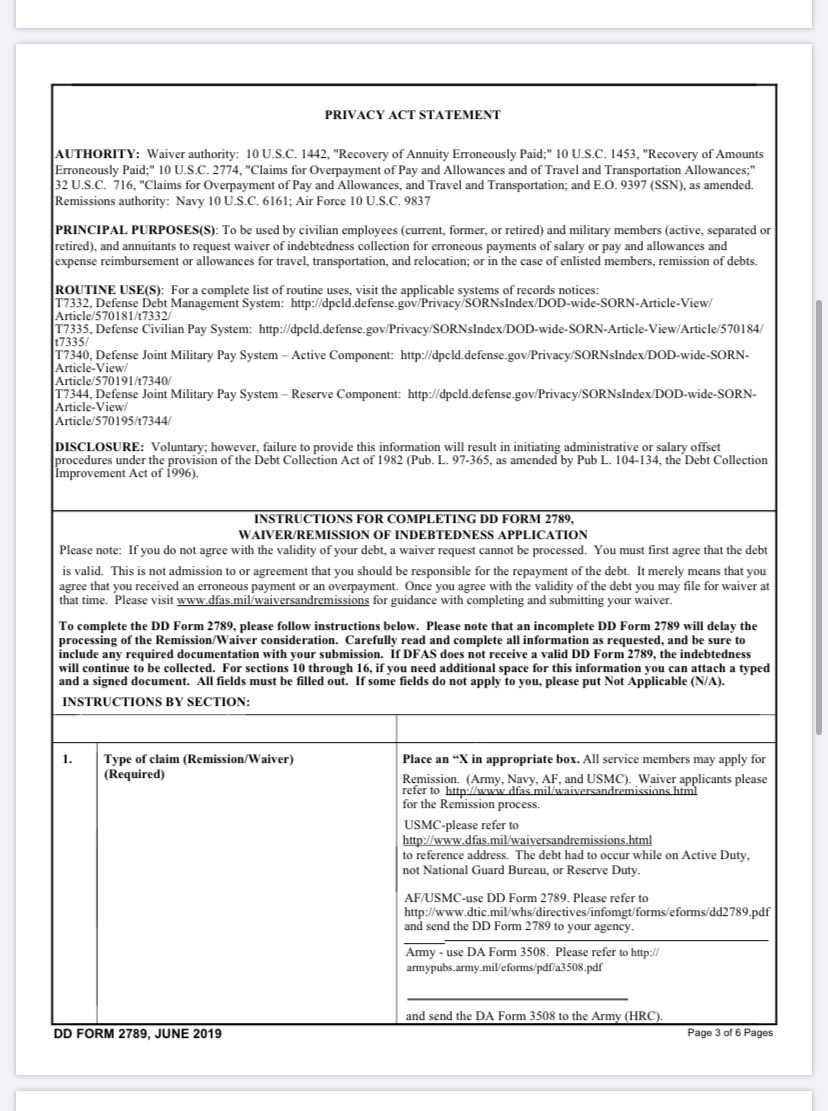If you’ve been on social media in the last few years, chances are you’ve seen the “Trump Tank” image. You know the one: President Trump stands on top of a tank, looking ahead as fireworks and bombs explode in the background. To his right, a bald eagle firing a machine gun soars through the air over the tank’s gun engraved with the words “You’re Fired.” To his left, Old Glory and the Gadsden flag blow in the wind above a Big Gulp bumper sticker.

Trump Tank (Photo courtesy of Shawn Wylde)
When an image like that appears on our screens, it practically demands our attention with its provocative and humorous appeal. It’s an image people remember. Like that image, the man behind it — former Marine Corps Capt. Shawn Wylde — is just as provocative and humorous.
Long before Wylde became a leatherneck and multi-millionaire e-commerce businessman through his first company, apparel brand American AF, he embodied the heart of the Marine Corps’ core values: courage. In the Corps, courage is a strength ingrained in all Marines; it is the “mastery of fear…to do what is right.”
Now with a president open to looking at military corruption, evidenced by clemency granted to Navy SEAL Eddie Gallagher and pardon to former Green Beret Major Matthew Golsteyn, Wylde is ready to tell his own story.
Wylde was one of likely hundreds of Marine reservists who suddenly one day received notices from the Marine Corps that they must pay between $45,000 to more than $100,000 to the Corps.
These “debts” came on the heels of the Obama-Biden-era Budget Control Act. Signed into law in August 2011, the BCA shrunk the Pentagon budget by $487 billion over 10 years, with the average servicemember taking the brunt of the financial hit.
“I really believe this had to do with President Obama getting elected,” said Col. Jackson, a 30-year veteran of the Marine Corps, who was among many indebted and investigated by the Marine Forces Reserve (MARFORRES) finance office.
Wylde feels that his business and success give him a chance to finally stand up and lend his voice to help fight bureaucratic corruption and unfairness on behalf of the men and women who get railroaded by the military every day. Wylde has been using his voice for justice for years before now, however.
In 1987, when he was just seven years old, Wylde noticed about half a dozen classmates who were getting bullied on the playground. For young Wylde, enough was enough.
“We had to get tough,” Wylde told American Military News. “I thought if we had a tough-sounding name … the bullies would leave us alone, so we were the Red Scorpions.”
That same day, the principal called Wylde’s mother down to his school. She was told her son had engaged in gang-related activity. His mother laughed at the thought of a seven-year-old gang.
Through Wylde’s eyes, he was being punished for standing up to the bullies. In retaliation, Wylde stuck his hand into the principal’s fish tank, pulled out one of his goldfish, and swallowed it whole.
That’s the kind of person Wylde has always been. As Honor Court President, Wylde led a revolt at the Virginia Military Institute when the administration overstepped their bounds, and even suffered a brain injury stepping into a fight when a woman was being harassed outside a bar.

A headshot of Shawn Wylde from the Virginia Military Institute. (Photo courtesy of Shawn Wylde)
Twenty-four years after standing up for what he believed was right on the school playground, Wylde’s courage faced its biggest test yet — one that would change his life forever.
In 2011, Wylde came to know fellow Marine SSgt. Rachel Knight. Her story spurred Wylde’s innate desire to help people.
One year before Wylde knew her, Knight was sexually assaulted by a Chief Warrant Officer (CWO) that worked at the MARFORRES finance office. Knight blew the whistle on the assault, and after an investigation that lasted more than six months, the CWO was sentenced via a plea deal, despite Knight wanting to go to trial.
According to Knight, the CWO received an “Other Than Honorable Discharge” for “unacceptable behavior” and Knight was given a coin as recognition of her bravery in coming forward.
“I was disgusted and disappointed,” Knight told American Military News. “You go to boot camp and they teach you all of these values, and part of our oath is defending the United States against enemies that are foreign and domestic. Yet it was like, where did our values go? Why aren’t you practicing what you preach?”
Less than one month later, Knight received an email from the same office that once employed the recently-sentenced CWO informing her that she owed the Marine Corps $81,277.11.
As a Marine reservist called to active duty, Knight was entitled to pay, travel, housing, and station allowances. A reservist received those entitlements based on where they permanently lived, commonly referred to as a PLEAD.
Certain that the debt was an easily-resolved error, Knight immediately started investigating and attempting to resolve it. The MARFORRES finance office told Knight that the debt stemmed from a reinterpretation of regulations involving the aforementioned PLEAD.
To put it simply: under the old interpretation, a reservist’s PLEAD was her permanent residence. If her home was in Montana and she was ordered to active duty in Virginia, she received allowances for travel and housing based on her permanent residence in Montana.
Under the new interpretation, however, a reservist’s PLEAD was wherever she was physically standing when she signed her orders. If the reservist waited until she arrived in Virginia to sign her orders, then she would not receive travel, housing and other allowances for her permanent residence in Montana.
The debt was based almost entirely on a bureaucratic technicality.
In Knight’s case, this meant the amount of pay to which she was entitled was drastically decreased. To make matters worse, the new interpretation that resulted in a mountain of debt was applied to Knight retroactively.
If this doesn’t make sense to you, it didn’t to anyone involved back around 2012, either. It was documented in many articles, all of which expressed confusion.
Colonel Grady Belyeu, the former head of the MARFORRES finance office, wouldn’t reply to American Military News’ repeated requests for information about this process or the details or reasons why this happened.
As Knight fought the erroneous debt, the Marine Corps garnished 100% of her pay for one month and two-thirds of her pay for four months after that. Knight was feeling helpless in the face of increasing odds when Wylde stepped in as an advocate for Knight.
Wylde contacted the finance office and Knight’s commanding officers to see if he could help. Just one month after Wylde started advocating for Knight, he too was retroactively indebted for over $100,000.
Both Marines were eventually told to fill out a waiver if they wanted to get the debt cleared. The language on the waiver form, however, required them to agree that the debt was valid. That language still appears on the waiver form today.
“Please note: if you do not agree with the validity of your debt, a waiver request cannot be processed. You must first agree that the debt is valid. This is not admission to or agreement that you should be responsible for the repayment of the debt. It merely means that you agree that you received an erroneous payment or an overpayment,” the current waiver form states.

The latest version the waiver form, June 2019.
Both Wylde and Knight knew the retroactive debt wasn’t valid and each refused to fill out a waiver. The MARFORRES Finance Office told Wylde and Knight that the waiver was not an admittance of guilt, but rather a mere formality to get the debt resolved.
The two Marines stood their ground. The debt was invalid and lying to make it go away wasn’t an option, and neither was sacrificing their values as Marines.
“It is irrelevant that, in the finance community, a waiver of indebtedness ‘is not an admission of guilt or innocence,’ rather a means to voice your circumstances and seek relief for an established debt. For [Defense Finance and Accounting Services] purposes, it is admitting that you owe an established debt to the government,” Knight’s attorney stated in an email to her and the finance office.
Running out of options, Knight decided to file an official complaint against the MARFORRES finance office with the Inspector General of the Marine Corps (IGMC), and just 12 days after receiving a disappointing response from IGMC, the MARFORRES finance office ordered a fraud investigation into Knight.
This type of treatment to rank-and-file Marines is apparently not uncommon.
According to Timothy Parlatore, a former Naval Officer and attorney specializing in military law, senior military leadership often treat the average servicemember as “disposable” and the Obama/Biden administration’s mindset of apathy toward lower-level servicemembers didn’t help.
“It’s the mindset that says, ‘We don’t need to send backup into Benghazi to help our guys that are under fire,’” Parlatore said. “There was more apathy from the [Obama/Biden] administration toward lower-level servicemembers. The reality is that military leadership is very frequently wrong and unaccountable. The [Trump] administration is showing a bit more interest in ensuring that our leaders are held accountable and that they’re not mistreating our people.”
In July 2011, a couple of months after the fraud investigation into Knight was initiated, Wylde requested mast, the official route for whistleblowers in the Marine Corps. In his official request, Wylde stated that the rules and regulations being applied by the MARFORRES finance office are “complex at first and require learning the directives to see how common sense and fairness have been completely disregarded.” Wylde went on to say that the amount of money in question for him alone was more than $100,000 and caused undue and unfair financial and emotional distress.
Now, in 2020, after being found innocent of defrauding the government, Knight is still paying $5 a month — a constant reminder of an unjust system — as she continues to fight the erroneous debt. In 2012, her last year of active duty, Knight said they Corps garnished nearly $17,000 of her pay. Since leaving the service, they have only compounded her financial struggles by assessing more than $4,000 of interest on the debt.
“Nine years later I’m completely buried,” Knight said, adding, “there has been no correction.”
Wylde and Knight weren’t the only victims
According to an email chain between Wylde and Belyeu in 2011, more than 92 PLEAD cases were open pending waivers and/or appeal at that time. After finding out there were more Marines like him and Knight, Wylde started fighting for every Marine impacted.
In an email to Belyeu, Wylde stated, “With 92 reservists and presumably millions of dollars of debt caused by the apparent–only a proper investigation would reveal this–incompetence of the…MFR finance office, the situation could be handled through a mass waiver.”
The finance office again recommended Wylde fill out a waiver. After explaining why a waiver wasn’t an option, Wylde received an email response from Belyeu that stated, “At this point in time, you are your own worst enemy. You can take the advice…or not. But, be clear that you fully understand that when competent authority provides you with solid advice or sends you an RFI and you choose not to accept or act on it, any ramifications resulting from it will fall squarely upon your shoulders. And as a Marine Corps Officer, you will be held fully accountable.”
Some victims did attempt the waiver route, despite the fact that the debt would be considered valid as a result. Resolution didn’t come without years of pay garnishment, confusion, and struggle.
In 2010, a now LtCol in the Marine Corps who spoke to American Military News on the condition of anonymity for fear of retribution by the Marines Corps, was reviewing his monthly earnings statement when he “nearly had a heart attack.” In place of his usual pay was a carry-over balance of $-48,000, unaccompanied by explanation or documentation.
Like Wylde, the finance office recommended the LtCol file a waiver. After months of calling to check on the status of his claim, the LtCol received a phone call from the Defense Finance and Accounting Service (DFAS), who told him that his claim was denied.
According to the LtCol, the servicemember at DFAS explained that “when a Marine package like yours comes in, we just call the finance office.” DFAS then received a letter from the finance office advising them to deny the waiver. After the listed point of contact at the finance office proved to be a dead-end, the LtCol decided to refile as a remission.
“From the servicemember’s perspective, it really is a feeling of utter helplessness. That you’re in this massive amount of debt and nobody will really help you,” the LtCol told American Military News. “Once it gets in the system that you owe the money, there’s really nothing you can do. It’s an irresistible force at that point.”
In 2013, after three years of battling, DFAS finally waived the debt. Through years of pay garnishment, the Marine Corps had clawed back more than $33,000 from the LtCol.
The LtCol said he received a portion of what was taken from him via a direct deposit that appeared out of the blue, but never sought the remainder of what he was owed because “after everything I’ve been through, I kind of don’t want the money. I just want to cut ties.”
Wylde knew the feeling of helplessness all too well, but his belief in Marine Corps values propelled him to keep fighting. Honor, one of the three main values in the Corps, is a commitment to act responsibly, be accountable for one’s actions, and “hold others accountable for their actions,” too.
In November 2011, Wylde sent an email to 1,000 administrators and leaders that he thought could help and to draw attention to the issue. In the email, Wylde detailed the issue, stating that they needed to correct a very serious and universal error in the Marine Corps.
“So, the bottom line is, with all this conflicting information/guidance/procedures, are Reservists still going to be held accountable to new/difference guidance retroactively?” the emailed stated. “And thus indebted for ALL past per diem and allowances?”
Almost one year and months of pay garnishment later, Wylde was honorably discharged from the Marine Corps in October 2012.
“I was distraught,” Wylde said. “I just wanted to be free.”
Wylde felt like his life was spiraling out of control, but that still didn’t stop him from trying to do what was right. In late 2012, Wyde and a fellow Marine stepped in to help their female friend who was being harassed by a group of men outside of a bar north of San Diego. Despite Wylde and his friend’s best efforts to deescalate, the situation quickly took a dangerous turn.
“I lost consciousness and regained it with a bashed-in skull and all bloody. They cracked bottles over my head,” Wylde said. “I tried to tough it out, but a doctor friend of mine came over to check me out and urged me to go to the hospital.”
Wylde had suffered a traumatic brain injury. Not long after the brain injury, Wylde found himself back in the hospital after his car was struck by another vehicle from behind on the freeway, propelling him into the car in front of him. Once again, Wylde lost consciousness. The “less severe” incident led to a vestibular disorder diagnosis, which still causes Wylde to experience dizziness, loss of balance, and anxiety to this day.
On top of the traumatic brain injury and while still buried under a mountain of debt, Wylde was struggling with PTSD and suicidal ideation. He recalled his deployment to Iraq from 2006 to 2007, and said, “I remember thinking, ‘I wonder if I’ll die here. That kinda sucks. I don’t even want to be here. I don’t understand why we are here. I did it out of duty.’”
While many of his friends and fellow Marines never made it home, Wylde did, and his survival led to years of pain and guilt.

Shawn Wylde stands in front of a humvee while on a tour of duty in Iraq. (Photo courtesy of Shawn Wylde)
Then, in August 2013, while suffering from the traumatic brain injury, PTSD, and suicidal ideation, Wylde was charged with two counts of wire fraud by the United States.
According to the official allegations, as a reservist, Wylde submitted fake apartment rental receipts using a fake email address to be reimbursed by the Marine Corps for rental payments that he never actually paid. He also allegedly received active duty pay and disability pay simultaneously without notifying the VA of his active duty pay.
Wylde told American Military News that he did create the receipts himself, but only because his landlord asked him to make them. When the finance office requested receipt records, he contacted his landlord, who had the attitude of “hand over something if asked. It’s legal … no big deal.” According to Wylde, his landlord said he didn’t have the time to create the receipts while traveling overseas, so he just told Wylde to do it.
Prior to the charges being filed, Wylde’s brother Tim Brooks told him that a federal officer showed up to his place of work asking questions about Wylde. Brooks respectfully told the officer that he wouldn’t answer any questions without an attorney present.
“You know, he showed up with his badge and his holstered pistol to capture my attention so I would give some kind of statement on Shawn,” Brooks told American Military News. Brooks believes the officer was trying to intimidate and embarrass him by showing up to his workplace unannounced.
Wylde was exhausted from years of battling the MARFORRES finance office, as well as physical ailments and mental illnesses, so when his attorney advised him to change his plea to “guilty” on both charges, Wylde blindly followed his advice.
“At this point, I just signed whatever my attorney gave me,” Wylde said. “I gave up. Didn’t even read it. I was defeated. My brain was mush.”
According to Wylde, he wrote a check for $92,000 — his life savings that included deployment pay — on the day of his sentencing. With that check, the erroneous debt assessed on his account was cleared. Finally free from the debt, Wylde now faced captivity of a different sort: prison.
“Prison melts your brain and turns it into mush. Insanely boring. People fight often out of boredom and frustration,” Wylde said. “Everybody gets injured mentally. Everybody I got to know was abused as a child and almost all had drug addiction.”
For Wylde, a day in prison was often marked by boredom and frustration. He would wake up, work at his mandatory job in the clinic, “be bored for 18 hours,” and then sleep.
A Wylde Youth
Now that Wylde is worth millions through his multiple businesses, he can see how his prison time facilitated an increased creative drive within him and set him on a different path. Still, prison was not where he or his family ever thought Wylde would end up.
“Shawn was always really caring and loving and just a normal little boy,” Wylde’s mother Isabel Joyce, a Portuguese immigrant, told American Military News. “He was very playful, smart and interesting.”
When Wylde was a young boy, his mother and father went through a difficult divorce. His mother then remarried Marine Mark Joyce, and so began Wylde’s life-long appreciation of Marines.
“He’s a real stand-up guy, has a real sense of duty,” Wylde said of his stepdad. “A real Marine…protecting people.”

Shawn Wylde with Marine Lt. General Jack Klimp and his brother Tim Brooks (Photo courtesy of Shawn Wylde)
As the stepson of a Devil Dog, Wylde spent much of his youth on Marine Corps bases. While attending Quantico High School, Wylde ran for student body president. In true Wylde fashion, he ran a campaign that included amusing promises like “free cigarettes, pencils, paper and love.” His campaign manager even threw in “free condoms” for good measure. His antics drove the administration crazy, but thrilled the students, and Wylde won in a landslide.
After high school, Wylde decided to follow in his older brother Tim’s footsteps and attended Virginia Military Institute (VMI), where he was ultimately elected to the position of Honor Court President.
As Honor Court President, Wylde organized a step-off on campus after a group of cadets were expelled by the administration on unjust grounds. The ruckus caused by the protest led to Wylde’s own expulsion.
“He doesn’t really worry about consequences,” said Brooks, a former Marine who also attended VMI. “Authority figures who don’t make any sense or who mistreat people … he really doesn’t like that.”
Despite his difficulty with military authority at VMI, Wylde decided to enter the Marine Corps. A fourth-generation Marine, Wylde was proud to follow the path that his step great-grandfather, step-grandfather, stepfather, and older brother all took before him. When it came down to it, all Wylde ever wanted to do was help people and serve his country.
“Some people might walk away. Although we hurt and we go through a lot of turmoil sometimes and it’s hard, you do the right thing, standing up for what’s right,” Isabel Joyce said.
The Comeback
Wylde’s four month sentence began at the Chesapeake Detention Facility, a super-maximum prison in Baltimore, Maryland. He was then processed through the Federal Transfer Center in Oklahoma City before eventually finishing his sentence at MCC San Diego. In between mopping floors and avoiding fights with fellow inmates, Wylde took solace in his creativity and his hope for a brighter future.
“I just made sketches and ideas while bored in prison,” Wylde said. “I figured I couldn’t get a regular job with a felony, so I sat and thought about what I would do online if I started a business.”
Wylde was finally released from San Diego Metropolitan Correctional Center on Dec. 5, 2014. He was immediately put under house arrest for one year.
American Military News confirmed that one year later in November 2015, Wylde was issued a second Honorable Discharge, fully ending his commission in the Marine Corps.
“I was happy. I could start working on my company. I knew I was onto something special,” Wylde said.
Spending almost no money at all, Wylde started AAF: an apparel company “with a mix of freedom, liberty and terrorist tears.” In the beginning, Wylde outsourced everything and drew all of the art himself.
“It was never about the money,” Wylde said. “I just wanted to express myself.”
Expressing himself paid off: his first t-shirt design, “AMERICAN AS F*CK,” made $5,000 in one week. Now, Wylde says AAF is grossing roughly $40 million a year. Wylde’s current best seller is “Trump Rodeo,” which features an image of President Donald Trump taking a bull by the horns as he wears a red “Make America Great Again” cowboy hat. The t-shirt is licensed with famous singer-guitarist and gun rights advocate Ted Nugent.

Trump Rodeo T-shirt. (Photo courtesy of Shawn Wylde)
AAF’s wild and lighthearted political designs have earned attention from media in the United States and abroad, including The New York Times, Independent, and Barstool Sports. The company even made a segment on Jimmy Kimmel Live, which the show uploaded to YouTube and affectionately titled “The Trump T-Shirt No One Needs.”
One of Wylde’s designs, “Rocky Trump,” was even noticed by the man himself — President Trump shared the image on his Twitter account.
— Donald J. Trump (@realDonaldTrump) November 27, 2019
After his success with AAF, Wylde decided to start another apparel business with the help of some friends from the Corps. The new business, Semper Silkies, is “the official headquarters of silkies, the world’s most versatile shorts. Stuff of Marine legend and Army lore.”
Semper Silkies feature playful phrases and images like “Skies Out, Thighs Out” and a bald eagle holding his mullet back with an American flag bandana. Word of the “daisy dukes of freedom” has gotten around, and in 2018, the silkies hit the news when a veteran wearing a pair of American Flag Semper Silkies streaked across the outfield during an Astros baseball game, narrowly avoiding the clutches of pursuing security guards.
“I don’t even make any money on it personally. I only do it for the fun and for the community of it all,” Wylde said. “It’s more of a passion project for me. I do it for fun and to raise money for charities.”
A portion of every Semper Silkie sold gets donated to one of the company’s five charity partners: Marine Raider Foundation, One More Wave, Team Rubicon, Pararescue Foundation, and Navy SEAL Foundation.
Wylde is also co-owner of OAF Nation and ASMDSS, two other popular military veteran brands that sell apparel.
“When I asked Shawn what he wanted to do when he grew up, he would just say ‘I just hope someday I can help people,’” Isabel Joyce said. “Shawn never really knew what he wanted to do except that he wanted to help people.”
Even with the success of his businesses, four months of prison and a year of house arrest wasn’t easy. Wylde believes going to therapy played an important role in getting through the dark period of his life and hopes other people struggling will do the same.
“Go to therapy as soon as you get out. Give into therapy and don’t try to act like it didn’t affect you,” Wylde said.
With the erroneous debt, prison and house arrest behind him, Wylde kept moving forward in a positive direction. In April 2016, the VA paid Wylde over $100,000, money which he was owed from years before as a result of his 100% disabled Veteran status.
Later in 2016, Wylde sued his old landlords, the same landlords involved in his first fraud case, for breach of contract/warranty.
Wylde asserted that the landlords created false and phony businesses and convinced him to invest on false pretenses. According to Wylde’s attorney, the landlords said they were going to manufacture and sell HPV test kits in countries in the far east, but they never did.
“The landlords in this case took advantage of Shawn during a time when he was vulnerable,” said Wylde’s attorney. “He was simultaneously suffering from a traumatic brain injury and other mental health issues, including PTSD. He was not capable of making good judgments and they knew it.”
Prior to the trial, the landlords attempted to include the first case as part of their defense, but the court ruled that the first case could not be discussed without tainting the current issue at hand.
In the end, the judgment included $197,158.00 against one of the landlords and $103,980.00 against the other to be paid to Wylde.
Also in 2016, the Marine Corps finally returned to the old reservist regulation: a reservist’s PLEAD was their primary residence.
Despite the change, some Marines, like Knight, still have debt that hasn’t been resolved. After everything, Knight says she doesn’t blame the Marine Corps. She said she has great respect for Marines and servicemembers as a whole.
“There’s this image that is created to protect the military. There might be some warfare tactic reasoning. You definitely want your enemies to think that you’re way better than them, but the reality is that in doing so, it creates an environment where corruption and negative things that are happening in the military don’t get exposed,” Knight said.
That’s why Wylde is back in the fight.
“It doesn’t feel like a choice even,” said Wylde. “I just have to do it because it’s the right thing to do.”
Wylde’s first battle since reentering the ring involved female Marines getting harassed online. One Facebook group, Tip of the Spear, was secretly sharing hundreds of nude photos of women in the Marine Corps.
Having served with women in Iraq, the story hit close to home for Wylde. As the Marine Corps struggled to contain the harassment online, Wylde started tracking down members of the groups and unmasking them on his Semper Silkies Facebook page. Wylde used $10,000 to purchase Facebook ads condemning the group’s activity and asking for anonymous tips. While it may be impossible to completely stop harassment, he does what he can to help combat it.
Wylde was inspired by recent stories of service members standing up for themselves against corruption. One such story was that of eight-tour Navy SEAL Special Operations Chief Edward Gallagher. Following a difficult war crimes trial that included the military prosecutors installing tracking software in emails to illegally spy on defense lawyers and one reporter, the decorated SEAL was found not guilty of first-degree murder and attempted murder of civilians in Iraq.
Gallagher was convicted of one charge: posing for photos with an ISIS captive’s dead body. None of the other 10 men in the photo were charged. For this crime, the Navy was preparing to demote Gallagher and expel him from the SEALs — until President Trump stepped in and granted clemency to Gallagher.
In another recent story, former Green Beret Major Matthew Golsteyn was accused of murdering a recently-released Afghan man during a deployment in 2010. Golsteyn admitted to killing the man during a polygraph test for a job with the CIA, but said it was part of a military ambush meant to prevent the alleged bomb-maker from returning to the Taliban.
Despite the controversy and inevitable backlash, Trump came to Golsteyn’s defense and dismissed the murder charges levied against him.
“When our soldiers have to fight for our country, I want to give them the confidence to fight,” Trump said in a White House press release.
Like Gallagher and Golsteyn, Wylde has dedicated his life to the military and to doing what is right to the best of his ability. Wylde is hoping for a second chance through a pardon from Trump.
Earlier this year, Wylde sent an unorthodox letter to Trump: written on sheepskin parchment, a nod to the United States Constitution, Wylde wrote his pardon request in calligraphy echoing the style of James Madison.
“While struggling with PTSD and a traumatic brain injury, I lost a legal battle with an entrenched bureaucracy,” his letter stated. “If you find me worthy of your mercy, might you pardon me on the 4th of July?”
Independence Day may have come and gone, but for Wylde, that’s a minor speed bump in the long road here. He may not be swallowing goldfish whole these days, but Wylde still fights for what he believes is right.
In the years ahead, Wylde hopes to help both civilians and veterans overcome the stigma of mental illness. He’s considering setting up a charity of his own to help vets “who screw up, had hard times, or are struggling with PTSD or other injuries.”
Wylde said he’s just getting started.



